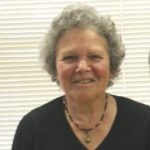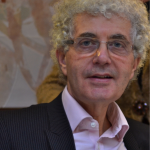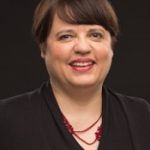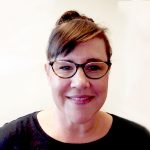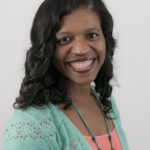Speakers
KEYNOTES
IDC 2017 is happy to announce three conference keynotes: Alissa Antle, Joshua Miele and Andy diSessa.
(see talk abstracts at bottom)
ANDY DISESSA
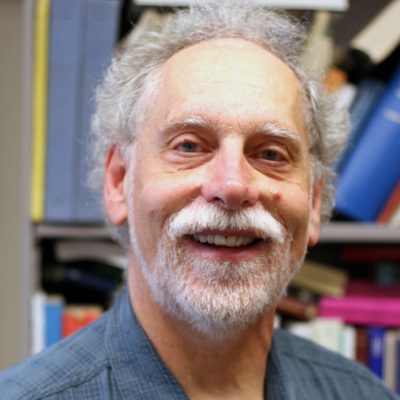
Talk Title: “What If Your Project’s Timeline is a 100 Years?: Reflections on Computational Literacies“
Andrea A diSessa is Corey Professor Emeritus of Education at UC Berkeley. He has an AB from Princeton and a PhD in physics from MIT. He is a member of the National Academy of Education and a Fellow of the American Educational Research Association. Prof. diSessa joined Seymour Papert’s Logo group in 1972, and is well known for his early (1981) book on Turtle Geometry (with Hal Abelson) and for developing the Boxer computational medium, along with associated ideas about computational literacies. He has written over a hundred articles and chapters, and authored or edited a half dozen books and monographs, including Changing Minds: Computers, Learning, and Literacy (MIT Press). Recent work has tilted toward empirical and theoretical study of learning, particularly the role of intuitive knowledge in science learning, as founder of the “knowledge in pieces” approach to conceptual change. Current work includes teaching and studying the learning of dynamical systems theory (“patterns of change and control”) by pre-high school students, and writing a sequel to Turtle Geometry in physics.
ALISSA ANTLE
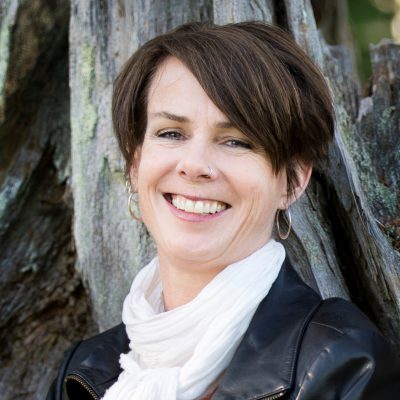
Talk Title: “Crazy Like Us: Design for Vulnerable Populations”
Dr. Antle is an innovator and scholar. Her research in design and human-computer interaction pushes the boundaries of computation to augment the ways we think and learn. As a designer and builder of interactive technologies, her goal is to explore the ways in which these innovations can improve, augment, and support children’s cognitive and emotional development. Her interactive technologies have been deployed to facilitate collaborative learning about aboriginal heritage, sustainability and social justice; improve learning outcomes for dyslexic children; and teach self-regulation to disadvantaged children. In 2015, Dr. Antle was inducted into the Royal Society of Canada’s College of New Scholars, Artists and Scientists. This is the highest honour for a scholar in Canada, acknowledging her as one of Canada’s intellectual leaders. Dr. Antle began her career receiving dual Bachelor degrees in Systems Design Engineering and Liberal Arts from the University of Waterloo and a Ph.D. from the University of British Columbia. After her graduate studies, Dr. Antle worked in the new media industry as a senior designer and executive producer for companies including CBC Children’s Television and award winning science educator Brainium.com. Currently, Dr. Antle is a Professor in the School of Interactive Arts + Technology at Simon Fraser University.
JOSHUA MIELE
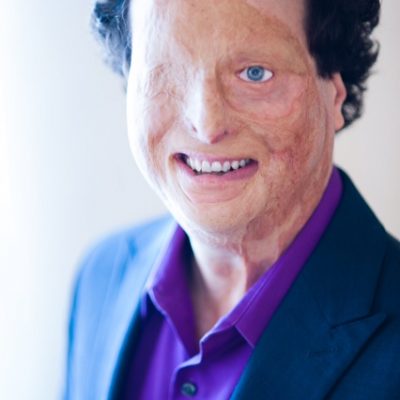
Talk Title: “Teaching Teachers and Making Makers: What the Maker Movement Can Teach the World About Accessibility and Design”
Dr. Joshua Miele is an innovative leader in both the accessible technology and blindness communities whose inventions are characterized by the creative use of low-cost, off-the-shelf technologies to improve information accessibility for the blind in education, employment, and entertainment. As a scientist and Associate Director of The Smith-Kettlewell Rehabilitation Engineering Research Center on Low Vision and Blindness he spends his days designing and developing new tools and techniques for improving information accessibility. As a community leader and founder of the Blind Arduino Project, LightHouse Labs, and the Description Leadership Network, Dr. Miele is a teacher and bridge builder, with an approach to accessibility that integrates community, communication, and self-empowerment with user-centered and universal design principles. His career spans decades, including contributions to screen readers; auditory and tactile displays; tactile maps, models, and graphics; mobile wayfinding; braille input; video description; hobby robotics; and more. Dr. Miele was born in Brooklyn and lives in Berkeley with his wife and two children. He is a graduate of the University of California at Berkeley where he received his BA in physics and his Ph.D. in psychoacoustics.
KEYNOTE ABSTRACTS
Alissa N. Antle - IDC 2017 Keynote: Crazy Like Us: Design for Vulnerable Populations
Most ethics boards classify children as a vulnerable population – all children. The reason given for this is that children lack the necessary cognitive capacity to decide whether or not to participate in most research. It may be difficult for them to foresee the risks and potential benefits to their own well-being or to understand how the conditions of research may or may not be in their own best interests. Children who have special challenges, such as those with dyslexia, ADHD, developmental delays, or mental health issues, or children living in poverty, who may be illiterate or repressed, may have even less capacity to understand and give assent to participate in research. Working with and for children, which is the cornerstone of the child-computer interaction community, raises a number of ethical challenges. First, we must present our research to children in ways they can understand. Because if we don’t do this then we exclude the children who could benefit the most from the work we do, because they cannot easily give assent or because they may be difficult to access or work with. This raises an even more important issue. We may think that children can benefit from participating in our research or from using the computational systems that result from our research. But is this true? How do we know if the children we study are benefiting from our research? Third, what happens after our research is over? What legacy do we leave behind when our research is complete? And lastly, whether we are aware of it or not, we all make assumptions about what children’s development, education and even their lives should look like. Author Ethan Watters wrote a book called, Crazy Like Us, the Globalization of the American Psyche. In this book, Watters suggests that mental health professionals from industrialized countries have generated modern theories of the human psyche, created treatments based on these models and then exported them to many of the world’s cultures – sometimes with devastating consequences. Can we really take what we know about mental health and wellbeing and transfer it to other cultures? Does it really apply? The assumption behind this commodification is that everyone is crazy like us! But is this true?
Based on my own experience working with vulnerable children, in both industrialized and non-industrialized countries, I will discuss ethical challenges that deserve our consideration when we conduct research in child-computer interaction. By examining these issues as we plan and conduct our research we can – as a community – take the necessary care to ensure that our work has a positive impact and that we are contributing in ways that are important not just in our own minds, but in the lives of the children our work is intending to serve.
Joshua Miele - IDC 2017 Keynote: Teaching Teachers and Making Makers: What the Maker Movement Can Teach the World About Accessibility and Design
Although interactive technologies and the maker movement offer stunning prospects for the next 50 years of educational inclusion and accessibility for learners with visual disabilities, a surprising array of physical, digital, and cultural barriers continue to communicate lessons of exclusion and inequity. Accessibility is a fundamental aspect of digital and physical design which, when present, allows a user with a disability to have an effective and substantively equivalent experience to that of a user without a disability. Here we consider interaction barriers for people with visual disabilities, but the themes readily apply to other disability-specific challenges in universal design and inclusion.
Consider any cross section of exciting instructional technologies, and chances are they are dominated by visual metaphors, graphical user interfaces, data visualizations, and interactive video. Systems that incorporate ostensibly non-visual, multi-modal interactives such as haptics and active manipulation do not necessarily expand access for blind and visually-impaired learners, as such tools are likely also to include key interface elements that are visual.
The same may be said of mainstream information technologies – accessibility is still temperamental and far from complete for such seemingly simple and ubiquitous resources as Google Suite, Facebook, and YouTube, let alone advanced immersive experiences such as Oculus Rift. The iconic tools of the maker movement and experiential learning – 3D design, modeling, and printing – while lauded and enthusiastically embraced by sighted designers of accessible instructional materials, remain largely unusable by independent blind makers.
Nevertheless, the maker movement and its characteristic openness and creativity is sowing seeds of change for accessibility and inclusion with long-term positive implications for people with visual disabilities in education, employment, and entertainment. This presentation will describe a long-term strategy for leveraging the maker movement and its technologies to:
Expand inclusion of people with visual disabilities in experiential STEAM learning opportunities.
Actively Involve learners with and without visual disabilities in user-centered design of accessible solutions.
Improve representation of people with visual disabilities in STEM majors and careers.
In discussing overlapping themes of user-centered design, metamaking, and Accessibility From First Principles, The presenter will draw on examples and case studies from his career as an accessible-technology researcher, as well as from a lifetime of direct experience as a blind scientist and student. His primary message is that accessibility is far more than the inclusion of non-visual interface elements and adherence to standards – it is a design consideration which, in order to be meaningful and effective, must come from a user-centered culture holistically integrated with other critical factors of design and usability. The next 50 years offers people with visual disabilities the potential for vast improvements in educational and employment equity and inclusion, but not without dedicated engagement and activism by teachers, students, developers, and policy makers.
In this vision we start simply, with blind and sighted teachers and students using the tools of the maker movement to begin building tomorrow’s accessible world – together.
Andrea A diSessa - IDC2017 Keynote: What If Your Project’s Timeline is a 100 Years? Reflections on Computational Literacies.
What could it mean to have a project with goals that take decades or even a century to realize? In this talk, I reflect on my own intention to work toward a genuinely new and deep literacy—computational literacy—which I would place in eventual impact about halfway between algebra/calculus (as a literacy) and the root prototype, mass literacy centered on written text.
I start by explaining what I mean by computational literacy and what experiences have concretized it for me and made it an attractive and plausible goal. Because of its nature as a cultural phenomenon, a literacy can only be achieved by a long and meandering path of social genesis. I illustrate the nature of such development with phenomena—cultural memes, movements, sensitivities, and values (MMSVs)—as they influence development. Example MMSVs include “computational thinking” as construed by the computer science community, and the widespread current popularity of “coding academies.” Finally, I position some of the best modern allies in the quest for computational literacy—such as constructionism and computer modeling—in what I take to be the larger frame: the development of a true computational literacy.


